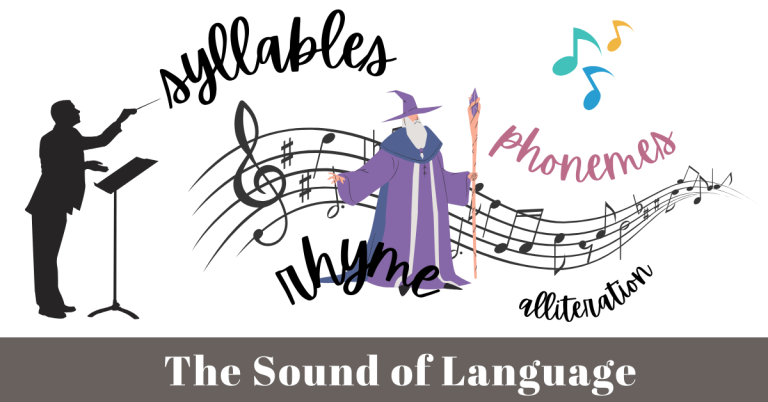The Role of Compound Word Activities in Fostering Phonological Awareness
Smash two words together—cup and cake—and you’ve got more than just a tasty treat. You’ve got a learning opportunity packed with phonological power!

Ox & Owl Questions to Ponder
Could compound word activities quietly teach children how to hear the rhythm of syllables and master word parts without even realizing it?
What role does joyful, hands-on wordplay have in helping kids make sense of how language really works?
What if playful word mashups were actually helping children build the brain pathways they need to become confident readers?
When children first begin to explore how words work, they’re unlocking one of the most powerful tools for reading success: phonological awareness. This foundational skill involves recognizing and working with the sounds in spoken language—long before letters and spelling come into play.
One fun and effective way to build this awareness is through compound word activities. These playful exercises invite children to break apart and blend sound at the whole word level.
In this post, we’ll explore why compound word activities matter, how they support phonological development, and practical ways to bring them into early learning environments.
A Quick Word About Compound Words
A compound word is formed when two or more words are combined or used in combination to create a new word with a new meaning.
There are three different types of compound words:
- Open
An example is the word ‘swimming pool’Here are some ways practicing with compound words enhances your learner(‘s) phonological awareness development. - Closed
An example is the word ‘moonlight’ - Hyphenated
An example is rainbow-coloured
In this post we are focused on closed compound words. Activities that teach closed compound words will focus on three aspects: identifying, constructing, and deconstructing compound words.
Identifying Compounds
In the ‘identifying’ phase, we encourage young learners to spot compound words in everyday reading materials and objects, recognizing how two smaller words can form a single, meaningful word.
An example activity is reading a book and identifying compound words in the story.
Constructing Compounds
For the ‘constructing’ part, children can engage with hands-on activities or visuals to help them build compound words from smaller words, encouraging creativity and strengthening their understanding of how words combine.
An example activity is doing word build activities, such as a game where they need to come up with a compound word to continue towards the finish line in a game.
Deconstructing Compounds
Lastly, ‘deconstructing’ activities challenge kids to break compound words into their constituent parts, unveiling the smaller words within, thereby enhancing their decoding and comprehension skills.
An example activity, is playing with picture cards and having to combine two cards to create a compound word.
How Compound Words Strengthen Sound Awareness
What do you get when you mix rain and bow? A rainbow—and a perfect chance to build phonemic awareness at the whole word level! Phonemic awareness is a subsection of phonological awareness. Playing with sounds involves isolating, blending, segmenting, and manipulating sound components.
Compound word activities encourage children to listen for and manipulate whole word units. Let’s look at four ways compound words promote these important skills.
Syllable Awareness
Compound words often consist of two or more syllables. By engaging with compound words, children naturally gain exposure to multisyllabic structures. For instance, combining “cup” and “cake”, which are both words containing one syllable, creates the compound word “cupcake”, now a two-syllable word. This exposure enhances their awareness of syllable division and the rhythmic patterns present in words.
Blending Practice at the Word Level
Constructing compound words involves blending at the word level to form a new word. For example, combining “butter” and “fly” creates the compound word “butterfly.” This blending exercise helps children develop the ability to smoothly merge sounds, an essential skill for reading and decoding unfamiliar words.
Segmenting Practice at the Word Level
When children deconstruct compound words, breaking them down into their individual components, they are practicing segmenting skills at the word level. For example, in the compound word “rainbow,” children learn to identify and differentiate the sounds of “rain” and “bow.” This segmentation practice starts them on the path of isolating sounds within words, a fundamental aspect of phonological awareness.
Manipulation Skills at the Word Level
Working with compound words encourages children to manipulate sounds within words. They can experiment with adding or removing components to create new words or modify existing ones. For instance, the word “sun” can be combined with “flower” to create the word “sunflower”, or it could be combined with “shine” to create the word “sunshine”. This manipulation fosters a deeper understanding of how changes in sound contribute to alterations in word meaning.

Get Fun Syllable & Compound Word Activities
With our Free Ox & Owl Literacy Bundle for You Below

List of Closed Compound Words Perfect for Compound Word Activities for Kids
This list is here to help brainstorm compound words for activities you want to do to help build their skills and continue to expose them to new words as their language abilities continue to mature.
A-C
- afternoon
- airplane
- airport
- angelfish
- anteater
- applesauce
- armchair
- armpit
- background
- backpack
- bagpipes
- ballroom
- barefoot
- barnyard
- baseball
- basketball
- bathroom
- brainstorm
- bathtub
- beachball
- bedroom
- beehive
- birthday
- blueberry
- bluebird
- bookcase
- bookmark
- bookshelf
- bookstore
- bulldozer
- butterfly
- campfire
- cardboard
- cartwheel
- catfish
- chestnut
- chickpea
- chopstick
- citizenship
- classmate
- classroom
- clipboard
- clockwise
- cobweb
- copycat
- cowboy
- crawfish
- crossbones
- crosswalk
- crossword
- cupcake
D-F
- daredevil
- daydream
- daylight
- daytime
- dishwasher
- doghouse
- doorbell
- doormat
- doughnut
- dragonfly
- driveway
- drumbeat
- dustpan
- earache
- eardrum
- earring
- earwax
- earthquake
- earthworm
- eggnog
- eggplant
- eyeball
- eyebrow
- eyeglasses
- eyelash
- eyelid
- fiddlesticks
- fingernail
- fingerprint
- firecracker
- firefighter
- firefly
- fireman
- fireplace
- firewood
- fireworks
- fishbowl
- fishcake
- fisherman
- fishhook
- flagpole
- flashlight
- flowerpot
- football
- footprint
- footprints
- footstep
- forecast
- forehead
- friendship
- frostbite
G-I
- gemstone
- gingerbread
- goalpost
- goldfish
- goodbye
- gooseberry
- grandchild
- granddaughter
- grandfather
- grandmother
- grandson
- grapefruit
- grasshopper
- grassland
- greenhouse
- Greenland
- groundhog
- hairbrush
- haircut
- halfway
- hamburger
- handcuff
- handlebars
- handshake
- handsome
- hayride
- haystack
- hazelnut
- heartbeat
- hedgehog
- herself
- highway
- hillside
- himself
- homemade
- homework
- honeybee
- honeycomb
- honeydew
- hopscotch
- horseshoe
- hotdog
- housecoat
- houseflies
- huckleberry
- hummingbird
- humpback
- iceberg
- icebox
- Iceland
- inchworm
J-M
- jackrabbit
- jaybird
- jaywalk
- jellybean
- jigsaw
- keyboard
- keyhole
- kickball
- kickboxing
- kidnap
- kingfisher
- knapsack
- kneecap
- knockout
- ladybug
- landslide
- laptop
- lifeguard
- lightbulb
- lightheaded
- lighthearted
- lighthouse
- likewise
- lipstick
- lovebird
- lovesick
- lukewarm
- lumberjack
- lunchroom
- mailbox
- mailman
- mainland
- mankind
- masterpiece
- mealtime
- meanwhile
- meatball
- meatloaf
- midnight
- milkman
- milkshake
- milkweed
- mockingbird
- monkshood
- moonbeam
- moonlight
- moonstone
- moonwalk
- motorboat
- motorcycle
- muskrat
N-R
- nearsighted
- newborn
- newsletter
- newspaper
- nightlight
- nightmare
- nighttime
- nitwit
- nobody
- noontime
- notebook
- nowhere
- nutcracker
- nutmeg
- nutshell
- oatmeal
- oneself
- onward
- otherwise
- outcome
- outbreak
- outburst
- outdated
- outdoors
- outfit
- outgoing
- outhouse
- outline
- outside
- outstanding
- ourselves
- overall
- overboard
- overcoat
- overcook
- overfill
- overflow
- overgrown
- overnight
- overpass
- overseas
- pancakes
- paperback
- passport
- password
- pathway
- peanut
- peppercorn
- peppermint
- piggybank
- pigpen
- pigtail
- pillowcase
- pineapple
- pinecone
- pinhole
- pinwheel
- pitchfork
- playground
- playpen
- pocketknife
- policeman
- popcorn
- postcard
- potluck
- potpie
- quarterback
- quicksand
S
- racecar
- racehorse
- railroad
- rainboots
- rainbow
- rainfall
- rainstorm
- rattlesnake
- reindeer
- riverbed
- riverside
- rocketship
- rowboat
- sailboat
- saltwater
- sandbox
- sandpaper
- sandstorm
- sawdust
- scarecrow
- schoolwork
- screwdriver
- seacoast
- seafood
- seagull
- seahorse
- seaplane
- seashore
- seasick
- seatbelt
- seaweed
- shoelace
- sidewalk
- silkworm
- skateboard
- skyscraper
- snowball
- snowboard
- snowflake
- snowman
- snowshoe
- somebody
- someone
- something
- sometime
- songbird
- spaceship
- sportsmanship
- springtime
- stardust
- starfish
- stingray
- storyteller
- strawberry
- suitcase
- summertime
- sunburn
- sunflower
- sunglasses
- sunlight
- sunshine
- superhero
- superman
- superstar
- surfboard
- sweetheart
- swimsuit
- swordfish
T-Z
- tablecloth
- tablespoon
- teacup
- teammate
- teardrop
- teaspoon
- textbook
- thanksgiving
- themselves
- throughout
- thumbtack
- thundercloud
- thunderstorm
- tinfoil
- tiptoe
- toadstool
- toenail
- toolbox
- toothbrush
- toothpaste
- toothpick
- topsoil
- treadmill
- trustworthy
- tugboat
- undercook
- undercover
- underground
- undersea
- undershirt
- understand
- underwater
- underwear
- upstairs
- username
- viewpoint
- vineyard
- volleyball
- watchdog
- waterbed
- watermelon
- waterproof
- waterspout
- website
- weekend
- weightlifter
- wetsuit
- wheelbarrow
- wheelchair
- whirlpool
- wholehearted
- wildfire
- wildlife
- windmill
- windshield
- windstorm
- woodchuck
- workbook
- workout
- workroom
- worldwide
- worthwhile
- yearbook
- yourself
- zigzag
- zookeeper
Nurturing Little Minds, Sparking Big Dreams

I’m happy you’re here!
Hi, I’m Julie, the passionate creator of Ox & Owl Literacy. I enjoy empowering families and educators with wonderful resources to inspire fun, imaginative, and joyful learning opportunities for young kiddos. You’ll find lots of recommended books, reading resources, and creative learning activities on this site aiming to help children fall in love with language, books, reading, and the transformational power of stories.









